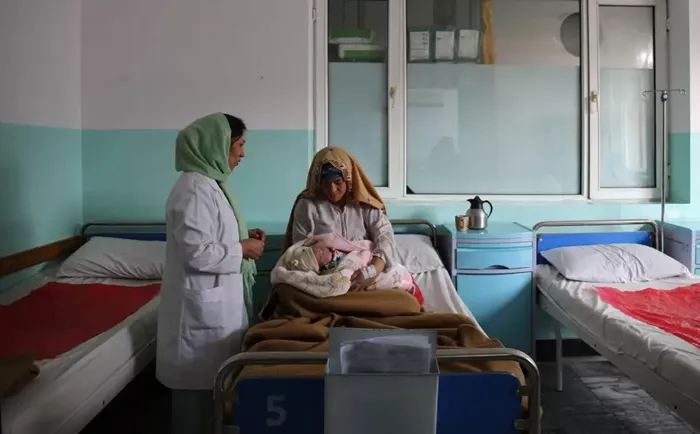Kabul — Dr. Najmussama Shefajo, Afghanistan’s most prominent OB-GYN, warns that the country is facing a severe maternal health crisis. Known for openly discussing women’s reproductive health on Afghan television—a topic often considered taboo—Shefajo’s private clinic in Kabul has become overwhelmed with patients in recent months.
The surge in demand followed the Taliban’s December ban on women attending nursing and midwife training courses. This policy has strained the already fragile healthcare system and taken a personal toll on Shefajo, who reports suffering from migraines due to the stress of seeing many poor patients unable to afford care.
Despite the ban, Shefajo has found a way to continue training female nurses and midwives by employing them at her clinic, circumventing the Taliban’s restrictions by making them staff rather than students. However, she fears the situation will worsen as older healthcare workers retire or pass away, leaving a shortage of qualified female providers.
Under Taliban rule, women can only be treated by female doctors, and male doctors may only treat women in the presence of a male guardian. This restriction, combined with the ban on training female healthcare workers, threatens to increase maternal deaths in a country already among the most dangerous in the world to give birth.
“The number of deaths will be increasing, and one day there will not be female doctors in Afghanistan,” Shefajo said. She urged the Taliban to reverse their policy on women’s health education, appealing as a doctor, mother, woman, and Muslim to give women the chance to help rebuild the country.
The humanitarian crisis in Afghanistan has severely impacted maternal health. According to UN agencies, one woman dies every two hours from largely preventable pregnancy-related causes. Many women live in remote areas with limited access to healthcare facilities, and the economic collapse and restrictions on women’s rights have deepened these challenges. Without urgent action, maternal mortality rates are expected to rise significantly in the coming years.
Shefajo’s message is clear: sustaining and expanding female healthcare education and services is critical to prevent further deterioration of maternal health in Afghanistan.
Related topics:


